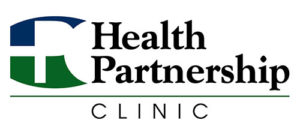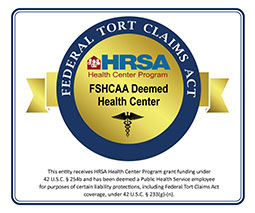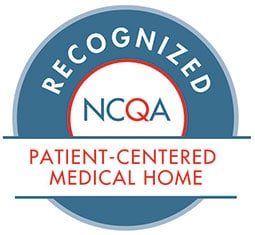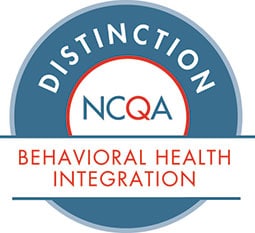July is Minority Mental Health Month
 Written by Gretchen Wells, MSW, LCSW, LSCSW, Behavioral Health Clinician, Health Partnership Clinic
Written by Gretchen Wells, MSW, LCSW, LSCSW, Behavioral Health Clinician, Health Partnership Clinic
Mental illness occurs in people of all ethnicities, races, national origins, sexual orientations, and gender identities, as well as other cultural identities. Any of us may experience distress related to mental health concerns, irrespective of our background. However, those from diverse cultural groups (such as Black/African American; American Indian/Alaska Native; Hispanic/Latinx; Asian American, Pacific Islander, and Native Hawaiian; and LGBTQIA+ communities) often experience inequities related to their behavioral health treatment, support, and quality of care.
According to Substance Abuse and Mental Health Service Administration (SAMHSA), racial and ethnic minority groups are less likely to have access to appropriate mental health services, more likely to utilize hospital emergency departments for mental health needs, and, as a whole, appear to have poorer mental health outcomes.
In order to improve access to mental health treatment and promote public awareness of needs and concerns related to mental illness for diverse populations, Congress formally recognized Bebe Moore Campbell National Minority Mental Health Awareness Month on June 2, 2008. This is in memory of Bebe Moore Campbell, an American author, journalist, teacher, and mental health activist, who labored diligently to bring awareness to the mental health needs of the Black community and other diverse populations. Campbell advocated tirelessly for her daughter, who struggled with both mental illness and a system that seemed to keep her from receiving proper treatment and support. She founded the Inglewood chapter of National Alliance on Mental Illness (NAMI) in a primarily Black neighborhood to establish a secure place for Black individuals to discuss mental health concerns. Campbell sadly lost her battle with cancer in 2006, but her legacy in the mental health advocacy field lives on.
“While everyone – all colors – everyone is affected by stigma – no one wants to say ‘I’m not in control of my mind.’ No one wants to say, ‘The person I love is not in control of [their] mind.’ But people of color really don’t want to say it because we already feel stigmatized by virtue of skin color or eye shape or accent and we don’t want any more reasons for anyone to say, ‘You’re not good enough.'”
– Bebe Moore Campbell
Minority Mental Health
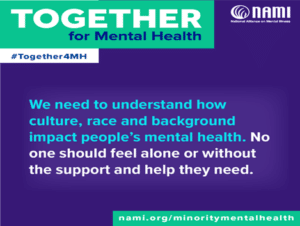 NAMI has adopted the message of “Together for Mental Health” for 2022’s Bebe Moore Campbell National Minority Mental Health Awareness Month this July. Together, we can realize our shared vision of a nation where anyone affected by mental illness, regardless of their background, culture, ethnicity or identity, can receive the appropriate support and quality of care to live healthy, fulfilling lives.
NAMI has adopted the message of “Together for Mental Health” for 2022’s Bebe Moore Campbell National Minority Mental Health Awareness Month this July. Together, we can realize our shared vision of a nation where anyone affected by mental illness, regardless of their background, culture, ethnicity or identity, can receive the appropriate support and quality of care to live healthy, fulfilling lives.
The entire mental health system in the U.S. needs drastic improvement, including when it comes to serving diverse populations. The following are just a few examples of barriers that these communities are often forced to deal with when attempting to access care:
- Language difficulties
- A system with little or no cultural consideration
- Racism, bias, and discrimination in treatment settings
- Reduced quality of care
- Less likelihood of health care coverage
- Stigma from numerous directions (for being part of a marginalized community and for struggling with mental illness), etc.
“What Can I Do”?
Below is a list of ways that you can help ignite change related to the mental health of underrepresented communities:
- Consider giving a presentation or starting a conversation about mental illness in your community – Check out the NAMI website for sample presentations that you can use, such as Sharing Hope for Black communities and Compartiendo Esperanza for Hispanic/Latinx communities.
- Emphasize the importance of a culturally competent provider, one who values the integration of patients’ beliefs and values into their treatment.
- Advocate – Call, write, e-mail, or otherwise start a dialogue about mental health awareness with your legislators, both state- and nation-wide.
- Share your story or experience related to mental illness – But only if you feel comfortable doing so. There are story-sharing platforms like Ok2Talk and You Are Not Alone if you’re ever feeling isolated or that your community does not understand mental illness.
- Join a virtual or in-person mental health advocacy walk to raise awareness and fight the stigma (such as NAMI Walks, PRO-ACT Recovery Walks, AFSP Out of the Darkness, Speak Up: Break the Silence, etc.)
- Donate money to or volunteer with a local cause that focuses on mental illness awareness and de-stigmatization efforts.
- If you are a health professional, you can continue your cultural competency education via resources such as U.S. Department of Health & Human Services: Think Cultural Health.
At HPC, we strive to practice cultural humility and cultural competence in an integrated setting.
We have staff who are multicultural, multilingual, and trained in and dedicated to providing quality care to the patients we serve. We encourage staff members to build on their natural curiosity, continue their education, and collaborate with patients on plans of care that are culturally sensitive.
The Behavioral Health Team at HPC invites you to celebrate Minority Mental Health Month this July. Please join our efforts to bring our voices together to advocate for mental health and access to care for all.
